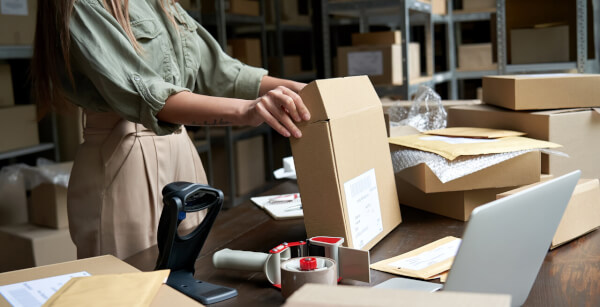Best credit card for small business in Australia (2026 Guide)
Looking for the best credit card for small business in Australia? Compare top business credit cards and debit alternatives like Wise Business.

Liquid assets are vital for any business. Without them, daily operations and proof of liquidity may be complicated. People believe that all assets are liquid in some form, and technically that’s correct. We’ll clear up the confusion in this article.
Find out what counts as a liquid asset in Australia, how liquidity is calculated for balance sheet purposes, and a commonly asked question.
| 💸 Looking for a stress-free international business account to pay abroad like a local? With multiple cards, AUD and foreign currency account details? |
|---|
Discover the Wise
Business account
Any asset that can be converted into cash, in a short time period, without losing its value, is considered a liquid asset.¹
A business holds liquid assets in the form of cash or government securities that it can readily use for immediate payments, even in a stressed market. Liquid assets need to have a low credit risk. ²
Anything that a business can convert to instant cash to pay off debts in a hurry without losing its value is a liquid asset.
Businesses also need liquid assets to confirm their net worth.
Liquidity is the ease and efficiency of converting a security or an asset into ready cash without losing its market value.
Cash is the most liquid of assets and can instantly be used to pay for goods or services.³
Other assets can be converted to cash, but this process may involve a time factor or loss of value. Here’s an example:
A factory wants to purchase a new piece of equipment, but doesn't have ready funds available. It’s not a straightforward process as the old equipment isn’t liquid, the factory must sell it first.
If there is little interest and a quick sale is required, its market value may be reduced. The asset is termed illiquid, as it wasn’t instantly converted without losing value.
Stakeholders of some companies may request a proof of liquidity every month.
Liquid assets are anything that appears under current assets on a business's balance sheet and are typically⁴:
Like the machinery example above, other tangible assets are assets that can be exchanged for cash but not quickly, and market value can’t be guaranteed. These are commonly referred to as illiquid assets; examples include:
A business needs to have liquid assets for two primary purposes:
Cash on hand needs to be at the level a business can access for unexpected expenses. Any company operating with little available money could find itself in financial difficulty.
A company needs to show its stakeholders that it is financially liquid, and this is done by proving that it has enough liquid assets to cover short-term obligations.
The easiest way is to use the liquidity ratio method⁵:
Liquidity ratio = high-quality liquid assets / expected cash outflow in the next 30 days
If the outflow side is more significant, it could reflect that the company’s financial position isn’t strong. Increasing its liquid assets would be required.
Cash on hand is the most liquid of all assets, and an account that holds money is one of these. The Wise Business account can help simplify your business's finances on a global scale.
You can get access to local AUD account details, and account details for over 9 other major currencies like NZD, USD, EUR and GBP.
Send money to over 80 countries for just a small fee via the transparent mid-market rate, the same one you’d see on Google.
Use the Wise business debit card to make purchases online or while abroad. There is a small card-creation fee for each but there are no monthly fees. The Wise Business account links to Xero or Quickbooks for efficient reporting.
Find out how the Wise Business account can benefit your business.
Register for a Wise business account
in minutes 🚀
| Please see Terms of Use for your region or visit Wise Fees & Pricing for the most up-to-date pricing and fee information. |
|---|
Sources:
Sources checked on: 26 January 2023
*Please see terms of use and product availability for your region or visit Wise fees and pricing for the most up to date pricing and fee information.
This publication is provided for general information purposes and does not constitute legal, tax or other professional advice from Wise Payments Limited or its subsidiaries and its affiliates, and it is not intended as a substitute for obtaining advice from a financial advisor or any other professional.
We make no representations, warranties or guarantees, whether expressed or implied, that the content in the publication is accurate, complete or up to date.

Looking for the best credit card for small business in Australia? Compare top business credit cards and debit alternatives like Wise Business.

A complete guide to Stripe fees in Australia. We explain standard pricing, transaction costs, GST, handling surcharges, and saving on global transfers.

Learn how to take payments over the phone in Australia, including details about card machines, the benefits and risks, and how Wise Business can help.

Learn what Odoo is and how its ERP tools work. We explore key modules, Australian pricing plans, and how it integrates with Wise Business.

Learn about Zoho Books, it's key features, pricing plans, GST handling, and how Zoho Books compares with Xero and QuickBooks for business accounting.

Learn what an invoice number is and how to assign it. We cover sequential formats, best practices, organization ideas, and more.